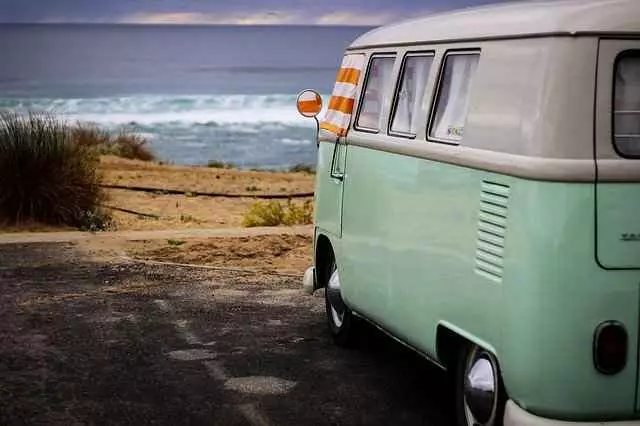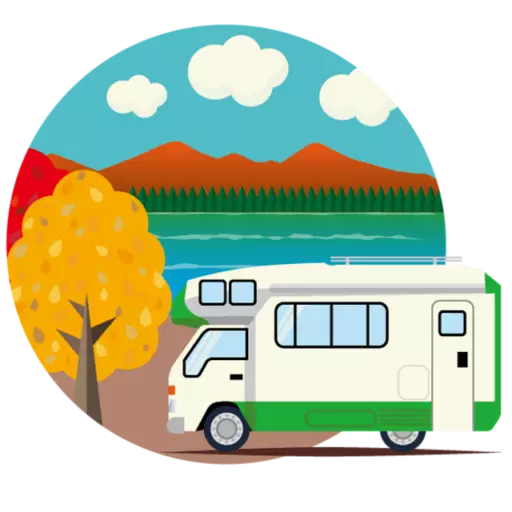It’s all about freedom when you travel in an RV. Taking to the open road to discover off-the-beaten-path delights. And what’s one way to genuinely go along the backroads? Boondocking isn’t just a funny word: it’s a genuinely cool way to travel. Basically, “boondocking” is when you take advantage of free camping without any facilities or hookups. In this article find out What Is Boondocking?, What Is Moochdocking? Moochdocking Meaning. What is a Boondocker? What Does Boondocking Mean? How to Boondock and How to Moochdock? The checklists and Where to Boondock for Free?
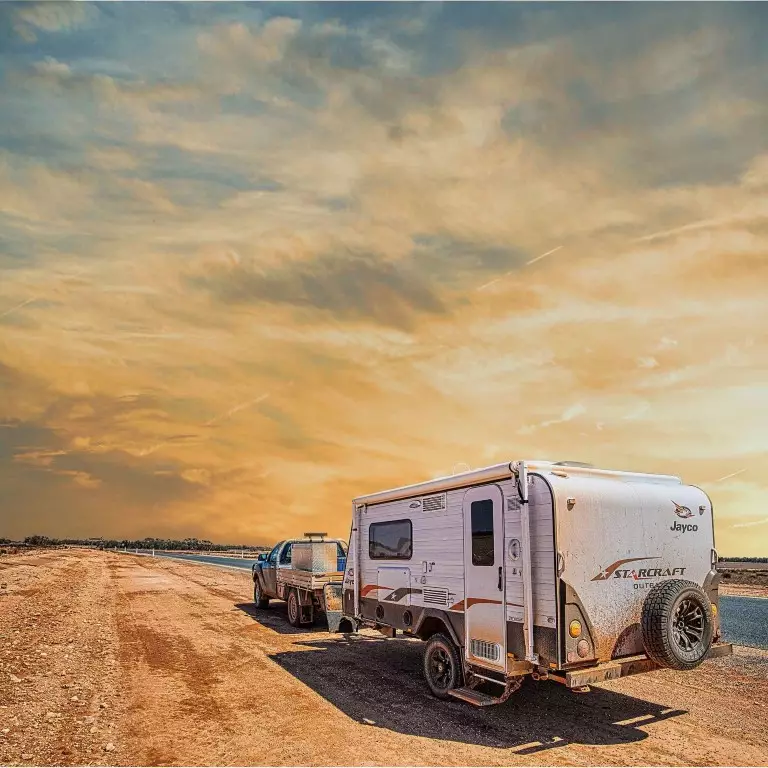
Table of Contents
What Is Boondocking? What Does Boondocking Mean?
What is Boondocking for RVs or Boondocking Camping and What Does Boondocking Mean? Camping without the facilities is known as boondocking, and it may be a cost-effective and enjoyable way to travel in an RV. Sure, it’s daunting at first, but with this guide, you’ll be able to pick the best RV for boondocking and hit the road with confidence. The RV and Camper Van community uses the term the most.
What Does Boondocking Mean? Boondocking refers to camping in the more traditional sense, deep in the woods, the desert, or the mountains, distant from civilization and without access to public services. Boondocking, on the other hand, is more commonly associated with vehicle-based camping, such as in an RV or van. Hikers who camp in tents are referred to as “backcountry campers.”
What Does Boondocking Mean? Boondocking is a means to make camping affordable and easy for folks who don’t want to go to a campsite. There are no hookups, no site assignments, and most likely no neighbors, so it’s not a problem.
However, you can’t just park wherever and call yourself a boondocker. It takes a little experience and know-how to get the most out of our boondocking.
RV boondocking is essentially off-grid RV travel. Camping, also known as “dry camping“, refers to camping in an RV without running water, sewer, or electricity. This may mean parking your truck deep in the bush or stopping at a highway rest stop. What matters is that you be self-reliant.
If you’re planning a lengthy road vacation, boondocking is a terrific way to save money and give yourself more route flexibility. You won’t have to make any bookings, and you’ll be able to go almost anyplace.
Traditional camping is known as boondocking. It’s how people have camped in the past, in the woods, on public property, fully depending on their own talents and any gear they bring. It’s not a simple no hookups camping; it’s camping where you can camp anywhere you choose.
However, most people associate boondocking with camping in a vehicle such as an RV, van, car, or pickup truck. You may still put up a tent, but most people drive-in with a vehicle to bring contemporary conveniences with them. Hikers who sleep in tents and carry their belongings on their backs are referred to as “backcountry camping.”
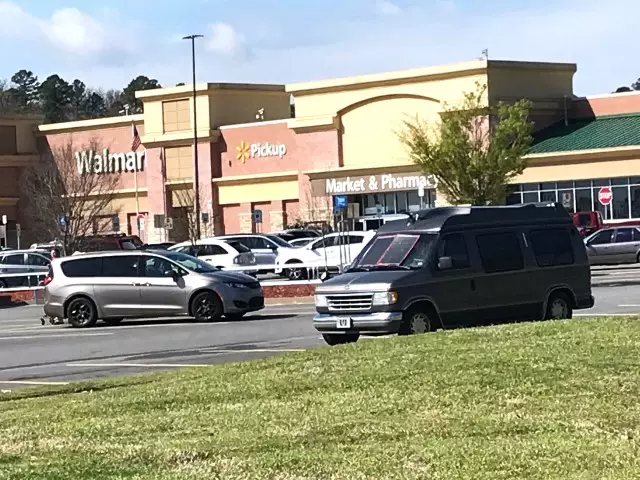
Origin of the Word “Boondocking” Why Is It Called Boondocking?
Why is it Called Boondocking? Let’s review the Origin of the Word “Boondocking”. “Boondocking or Bundocking” comes from the term “boondocks,” which comes from the Tagalog word “bundók,” which means “mountain.” American soldiers fighting in the Philippine-American War took the phrase to the United States (1899-1902). The Filipinos used the term as a vernacular for rural interior locations, which are often hilly and difficult to reach on the Philippine islands.
What is a boondocker? Boondocking Definition: The word “out in the boonies” comes from “boondocks”. The term “boondocking” is used by RVers to describe driving your vehicle into more distant places where you are reliant on your own abilities, tools, and supplies.
Some argue that this is just parking in the “boonies” without access to electricity, water, or sewer.
Others refer to a broader definition and don’t require boondocking to take place in the “boonies”; merely parking without hook-ups (also known as “dry camping”) counts.
For our purposes, we’ll utilize the broad term. The best reason to boondock, in our opinion, is to get out in the “boonies.”
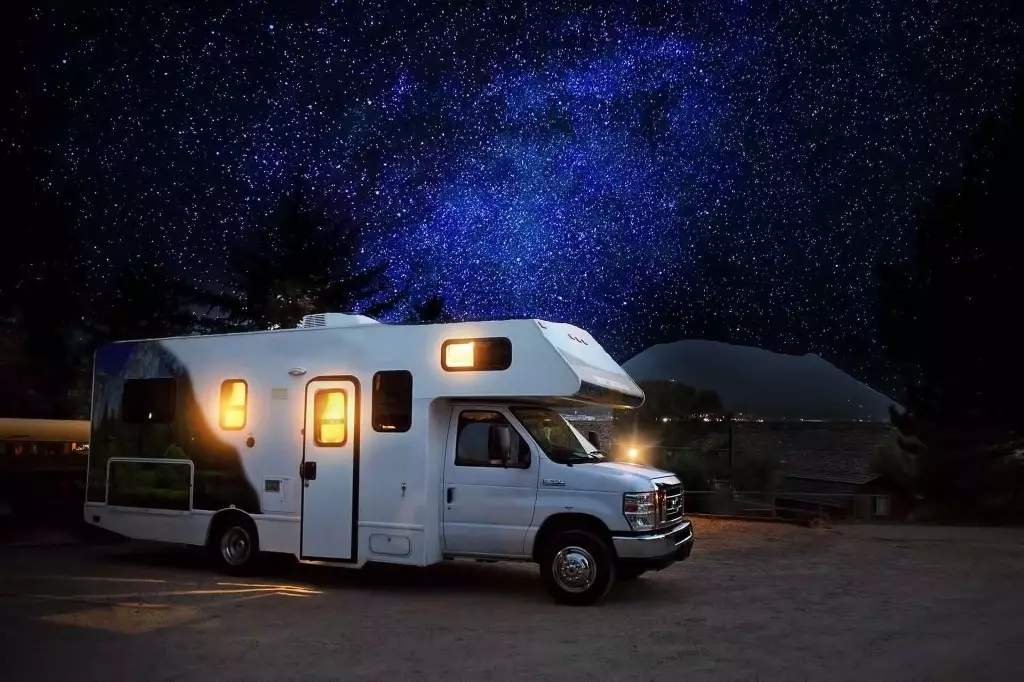
Why do RVers Boondock?
Why do RVers Boondock? As mentioned earlier, campgrounds and RV parks away from cities, crowds, traffic, awnings to awnings are good reasons.
Another major reason RVers choose to boondock is to save money. The expense of RVing can be significantly reduced by parking without hookups. There are various locations in the United States where we may park for free or at very discounted rates if we are willing and able to forego the convenience of hook-ups on occasion.
Both are something we like doing. We enjoy having hook-ups, but nothing beats finding a lonely area with a stunning view where the only sounds you hear are those of nature. As a result, we conduct a mix of free and paid camping. Our typical overnight camping expenses are around $15 because we do both.
Boondocking & Moochdocking: The Complete Guide to Free Camping Anywhere
Boondocking & Moochdocking. Every day, campers and visitors prefer to get away from the hordes of campsites and go off the grid. The phrase “Boondocking” refers to a variety of camping options. It might be anything from setting up a tent in the woods to parking at a Walmart.
So Wait, What is Boondocking? What is a Boondocker?
So Wait, What is Boondocking? What is a Boondocker? Boondocking is the simpler form of camping. You save the reservation procedure and costs, but you forego the convenience of an established campsite.
Boondocking is also a convenient option to just park your vehicle and sleep. Parking at a free lot overnight might save you time and money if you’re on a tight schedule and only need a place to rest for the night.
There is a range of free and low-cost camping choices depending on why and how you want to boondock.
Boondocking is a widely used camping phrase, although it is more popular in motorhomes and vans. Whether it is camping in a category A motorhome or camping, anyone can camp. If you plan to sort waste frequently, consider investing in rechargeable external batteries, composting toilets, fresh water tanks, and solar panels.
So, What is a boondocker? the person who boondocks or does boondock or experiences the boondocking.
What is Not Boondocking
What Boondocking Isn’t. It’s not the same as dry camping. Camping without connections is known as dry camping. Boondocking is a type of dry camping that takes place on public grounds where you can stay wherever you like. Dry camping, on the other hand, includes staying in constructed campsites with no connections.
Boondocking is no overnight parking at Walmart, Home Depot, rest zones, or on the broad shoulder of a road. Because the intention is only to relax overnight and continue traveling the next day, this is not even considered camping. Some individuals think they can “boondock at Walmart,” but what they truly mean is overnight parking. That is just moochdocking. It is not boondocking.
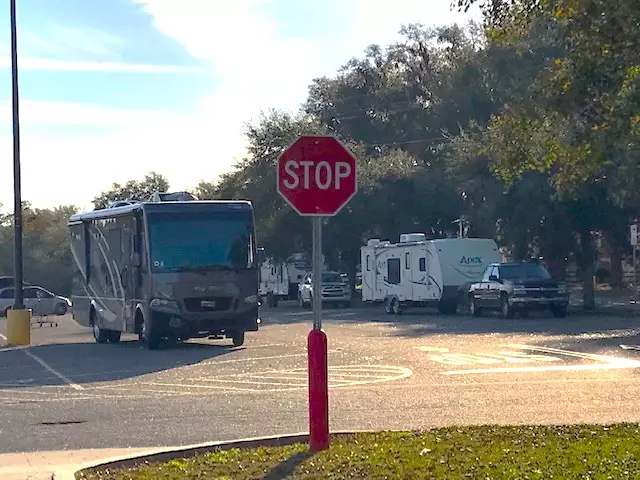
What is Moochdocking and How to Moochdock
What is Moochdocking and How to Moochdock? Moochdocking Meaning: Parking on private property, such as casinos, truck stops, driveways, or private land, is not considered boondocking. This is referred to as “moochdocking,” which is a type of dry camping. Similarly, most of what is accessible through Harvest Hosts or Boondocker’s Welcome is a sort of moochdocking rather than boondocking.
Boondocking isn’t always synonymous with free camping. Hundreds of free constructed campgrounds created by the BLM, USFS, Army Corps of Engineers, and National Wildlife Refuges are included in the phrase “free camping.” Boondocking, on the other hand, is camping outside of established campsites.
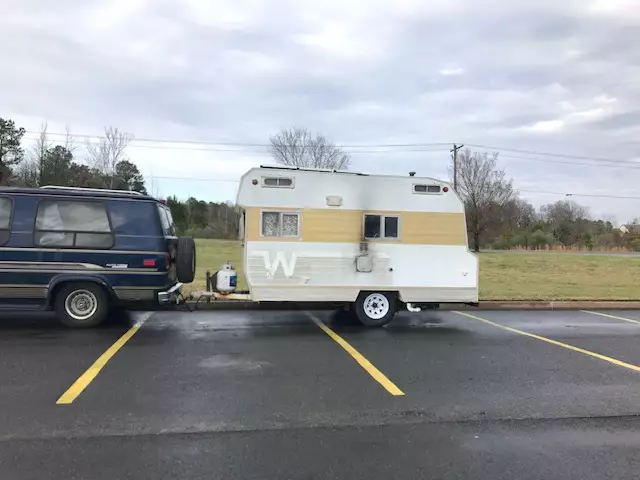
Boondocking is Not Cheap Camping
Camping isn’t cheap when you’re boondocking. Boondocking is not a low-cost camping option. Yes, not staying in RV parks and campsites saves money, but buying fuel for a generator, needing to buy extra propane, installing solar panels and battery banks, and having all the gear necessary for boondocking all cost money.
Boondocking, on the other hand, is for people who wish to be closer to nature, get away from other people, and find more tranquility.
The majority of boondockers have a sizable savings account. Boondockers are thrifty individuals who like the challenge of living with less, reusing items, and not having to spend money on things they don’t require. See “Are RV Boondockers Generally Poor People?” for more information.
Modern-day homesteaders and off-grid aficionados are similar to boondockers. Boondockers consider themselves as living “with” the land, whereas homesteaders regard themselves as living “off” the land. They enjoy being able to roam about freely and blend in with whichever environment they choose to camp in.
What is a Dry Camping
Boondocking is sometimes known as dry camping, although there is a distinction to be made. Dry camping is just camping without any hookups outside of developed campsites, whereas boondocking is camping without any hookups inside such campgrounds.
The difference is that dry camping is possible on an established campsite. When we stay at the Elk’s Lodge, for example, we always inquire about dry camping. Dry camping helps us keep our RV costs down.
How to Boondock Safely and Responsibly
When you first start boondocking, it’s natural to be a bit cautious. When considering whether or not an area is safe for boondocking, there are several aspects to consider.
Where to Boondock?
For us, the best spot to boondock is on public land in the wilderness. Dispersed camping in national forests has been one of our favorite boondocking experiences. Boondocking in the Grand Canyon and Sedona, near Flagstaff, Arizona is a great option to enjoy nature.
You need to know where you’re going before you go on the road. During your RV boondocking journey, you can stay at the following locations:
Where Do RVers Boondock And How Do They Find These Places?
Well, there are a lot of possibilities. Some boondocking places are well-known among RVers, but finding the ideal spots might require a lot of time and effort. Although RVers are a nice lot, boondockers aren’t always generous with their preferred spots.
Let’s take a look at some of the most common boondocking alternatives.
Technically, you are free to park wherever you wish. Fines, penalties, arrest, a middle-of-the-night wake-up call, or staring down the barrel of a property owner’s pistol are all possibilities.
We like to categorize boondocking places into the following groups:
1. It has been officially acknowledged.
2. It’s unofficial, yet it’s well-known and widely used.
3. Although unofficial, special authorization was granted.
4. Parking is unofficial and at your own risk.
5. Parking is prohibited; you must park at your own risk.
The fact that there might be a narrow line between all of those groups can make things difficult.
We favor categories 1 and 2 and will use 3 on occasion, but we avoid categories 4 and 5. Some people take a chance with 4 and 5 and do it frequently, but that’s much beyond our comfort zone.
As we move through our list of generic alternatives, we’ll see that the distinctions between acceptable and unacceptable boondocking are becoming increasingly blurred.
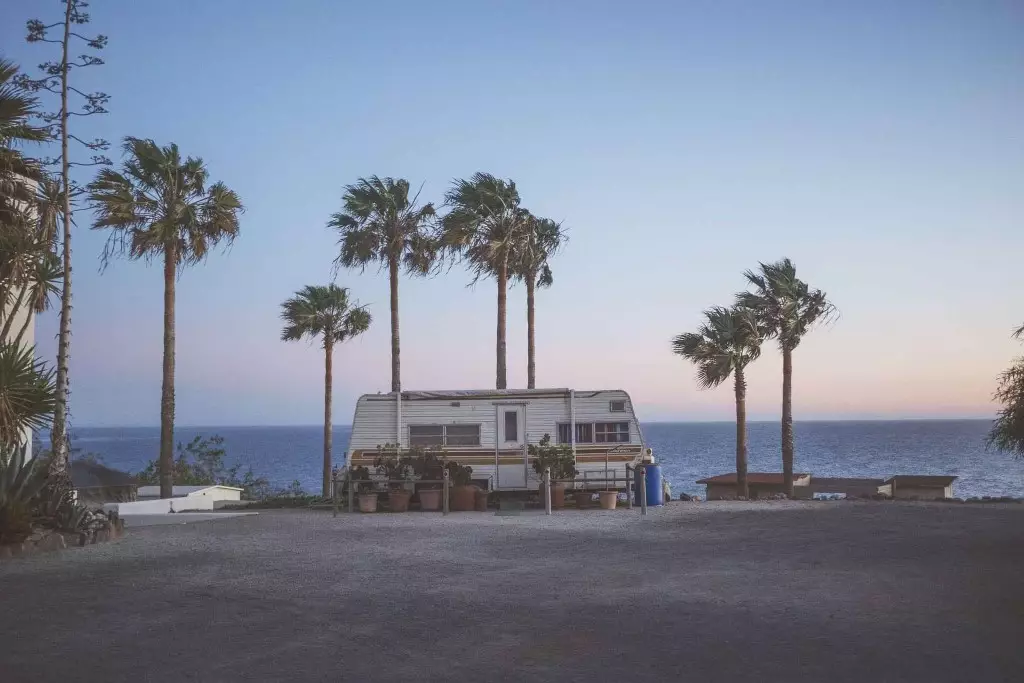
Choose a Spot Where Overnight Parking is Allowed
There are several places where you are legally permitted to remain overnight. If you are in the wild, to find a safe place is to choose a remote place like BLM Land. If you’re in town and need to find free camping quickly, here are some other popular options:
Truck Stops/Rest Areas
If you’re out in the woods, the best way to find a safe boondock place is to go somewhere isolated, like BLM land. Here are some additional popular possibilities if you’re in town and need to find free camping quickly:
RVers and Van campers are welcome to remain overnight at several truck stops and rest areas. However, because there is normally minimal monitoring here, make sure someone knows where you are. You’ll be near a restroom and off the highway. Although traffic might be loud, certain rest sites in more remote places can seem a lot like campers!
Some rest spots allow RVers to stay overnight, but many do not.
Interstate rest facilities necessitate prudence and a keen awareness of your surroundings. The closer you go to large cities, the more cautious you’ll need to be. We seldom hear of crimes against RVers, but of the handful we have heard about, a large majority of them have occurred at highway rest stops.
We don’t like traveling on interstates, and stopping overnight at a rest stop, even if permitted, would be entirely out of the question.
Visitors Centers
During the night, visitor centers are frequently uninhabited and may even offer running water and restrooms. Before committing to boondocking at a visitor center, make sure to check with them first.
TrailHeads
Overnight backpacking expeditions are popular on many paths. As a result, it’s not unusual to find vehicles parked overnight at trailheads.
Hotels/Motels
It’s always a risk boondocking in a hotel or motel parking lot. Many prominent hotels will be unconcerned if their parking lots are already nearly vacant. If the lot is full, it’s advisable to keep looking since you don’t want to get towed.
National Forests
Boondocking doesn’t have to include parking in a sketchy area. It’s a terrific method to boondock in the woods by parking off of forest service roads. More on this, below!
How to Find Boondocking in Public Land (BLM) and National Forests
Throughout the United States, several public forests and Bureau of Land Management (BLM) areas offer basic campsites with no facilities. In most national forests, you can camp anywhere as long as there is no indication indicating otherwise. For RVers who want to explore the many National Parks, boondocking is a terrific choice. Find free parking and “camping” spaces by following forest access routes.
Some forest access routes may be difficult to access if you have a large RV. They’re usually winding and unpaved. Check with the ranger to see if there is anywhere you can park for the night.
The USDA provides information on how to camp in National Forests and BLM land, as well as where to camp.
The US Public Areas app is also useful for locating public lands that provide free camping. Just make sure to do your homework BEFORE going deep into the woods, since you’ll most likely lose mobile service.
America has a lot of public lands, and a lot of them are open to the public for pleasure. The National Forest Service, the Bureau of Land Management (BLM), and other agencies often have designated campgrounds on public land.
Many regions, particularly in the west, allow dispersed camping (camping on public property but not on a recognized campsite). This is the greatest boondocking you’ll find, but it’s also the hardest to get by. Several general limits apply, such as:
• distance limits from the public road
• distance limits from natural water sources
• parking only in previously used spots
• time limits before having to move
And enforcement authorities may read rules differently.
Dispersed camping is, of course, forbidden in some locations.
As you gain expertise as a boondocker, you’ll meet new people and get recommendations for wonderful sites. Additionally, you will learn about other resources as well as some tips for identifying unique locations.
In the west, you may park for free on public property all year, and some people do.
How Long Can You Boondock in an RV?
You know where to go and what to do, but how long can you stay in an RV without running out of gas? Boondockers are allowed to stay for up to 14 days in some national forests and BLM lands. Others will set a time restriction of less than a week. The length of time you may stay in designated campsites and parking lots will almost certainly be limited. Wherever you go, be sure you know how long you’ll be able to boondock in your RV and prepare appropriately.
Keep in mind that this schedule is depending on your level of preparedness. A 14-day trek could be possible if you bring extra batteries and adequate provisions. Below, we’ll go through the important RV boondocking essentials to include in your packing list.
Campgrounds, State Parks, National Parks, RV Parks
Hookups are available at most private RV sites. Some, on the other hand, charge a lesser rent for overflow or overnight areas with no hook-ups.
When it comes to hook-ups, public campgrounds throughout the country are a jumble. Some have no hookups, while others have complete hookups (electric, water, and sewer). The majority have partial hook-ups, such as electric and water, electric only, or water only. They will almost always have a disposal station, but not always. If there are no water hook-ups, the campground may or may not provide spigots where you can get water.
The usage of generators is normally restricted to specific hours. However, some public campgrounds do not allow the use of generators at all.
Having the ability to boondock expands your options in our wonderful public parks.
Other Parking Lots for Boondocking and Moochdocking
I encourage you to continue reading this article to learn about What Is Boondocking?, What Is Moochdocking? What is a Boondocker? How to Boondock and Moochdock? The checklists and Where to Boondock for Free?
During the summer, it’s not uncommon to find numerous RVs parked at your local big box shop. Many of these big-box retailers, such as Walmart, Cabela’s, and even Cracker Barrel, provide free overnight RV parking for boondocking or moochdocking. You may also park overnight in rest areas and visitor centers along roads, depending on your state. These private company parking spaces offer an excellent opportunity for boondocking.
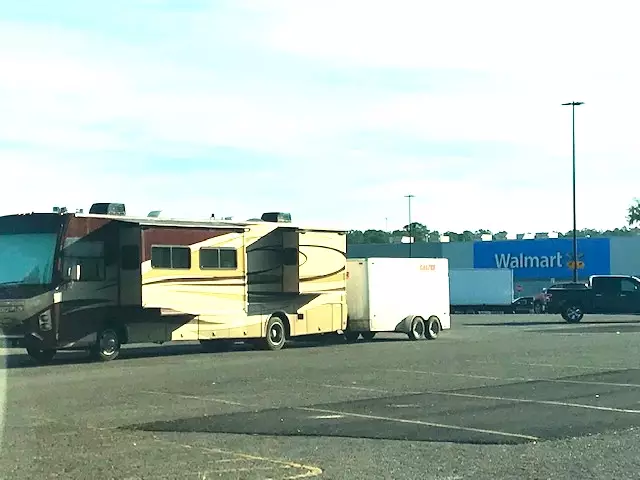
Instead of “boondocking,” many individuals refer to using private parking lots as “moochdocking”, as we explained in the previous paragraphs.
Overall consider that Boondocking does not include parking on private property such as casinos, truck stops, driveways, or private land. “Moochdocking,” should be the proper term. However, for the purposes of our readers, looking for a place to park the RV and expend free nights with no hook-up, these are the most famous parking lots in the USA where companies allow to park overnight (Boondocking/Moochdocking).
Most RVers are aware that they may park for free at Walmart parking lots overnight. Camping World, K-marts, Flying J Travel Centers, and a variety of other truck stops and companies with big parking lots are among the businesses that offer overnight parking.
Even if a company policy allows overnight parking at some locations, local rules prohibiting overnight parking frequently outweigh the company’s RV-friendly attitude. As a result, you must double-check all “No overnight parking” signs. And it’s usually a good idea to ask permission from a manager and double-check if overnighting is permitted.
The ability to remain overnight is primarily dependent on the store’s management. Here are some of the most popular overnight parking lots in the area:
- Walmart
- Cabela’s
- Bass Pro Shops
- Casinos: another possible free overnight for RVs to customers in their lot.
- Denny’s
- Cracker Barrel
- IHOP
- Holiday Inn
- Marriot Inn
- Target
- Kroger
- Winco/Safeway/24 Hour Grocery Stores
- KFC
- Boondocker’s Welcome Club is a group of RVers that welcome other RVers to stay on their land. Boondocking arrangements must be established ahead of time.
Let’s take a look at some fundamental manners for when a private business allows camping as a convenience.
1. Get permission, even if you’re confident it’ll be OK.
2. It’s only for one night.
3. Arrive late and go early
4. Awnings, lawn chairs, barbecues, mats, tripod satellite dishes, and other similar items are prohibited. (Slideouts and satellite dishes on the roof are ok.)
5. Park where the management instructs or as far away from clients as possible.
6. Use the generator sparingly.
7. Support the company! Spend some money in exchange for the privilege so that the company is motivated to let others.
Walmart Parking Lots for Campers and RVs
Boondocking is allowed in any Walmart parking lot for up to 24 hours at a time. You can stock up on supplies while parking for free by boondocking here.
You’re quite conspicuous, and security is usually present in most parking lots. However, Walmart’s restrictions on boondocking are tightening, so verify with the exact site before thinking it’s OK. There’s an app that can help you discover a Walmart that allows boondocking!
Find Free Camping in the Backcountry
In the Backcountry, You Can Find Free Camping. Backpacking tent camping is commonly referred to as “backcountry camping.” To go to a remote location, you pack in and out all of your camping stuff. You could have an outhouse if you’re lucky.
In certain cases, RVers can camp in the backcountry. There are rustic campsites with RV sites available in many National Parks and Forests. Primitive campsites are ideal for tiny RVs and pop-up campers since they lack connections and/or dump stations. It’s usually a good idea to double-check if special backcountry permission is required.
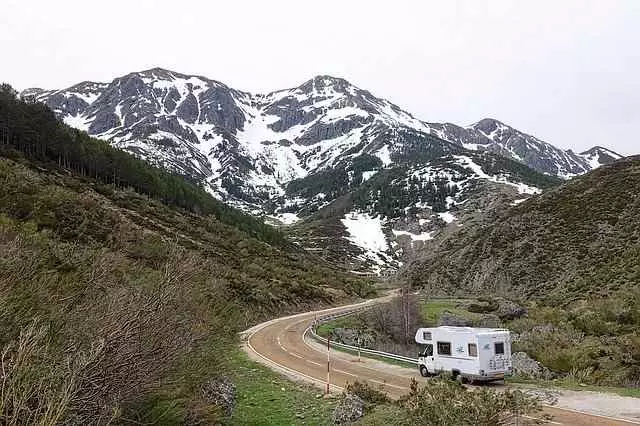
Did You Know There Are Free Campgrounds?
Did You Know There Are Free Campgrounds? Dispersed campsites on public property make up the majority of free campgrounds. Many are under the control of the state’s Fish and Wildlife Services or the National Forest Service and should be regarded as primitive.
Another way to save money is to “dry camp,” which is usually free. Staying on a commercial campsite with no hookups is known as dry camping.
You’ll have to rely on your own tanks and generators to stay alive. RV sites with full hookups might cost more than twice as much as that a site without hookups.
Why Boondockers Love Boondocking
What is Boondocking and Why Boondock? What is a Boondocker?
Boondocking may provide breathtaking vistas, tranquil surroundings, and the opportunity to commune with nature.
Boondocking, on the other hand, is not for everyone. Being a boonkdocker may not be for everyone.
Friends of ours prefer established campgrounds with facilities such as full hookups, a pool, a Jacuzzi, a laundry room, and a play area.
Boondocking is a pleasant alternative for individuals wishing to camp in secluded regions away from the crowds. Another reason we like boondocking is that the locations are frequently free or inexpensive. Personally, I like being a boondocker just because of the great level of connection with nature.
I would say the majority of boondockers began their lives as hikers who enjoyed going on lengthy trips that lasted days or weeks and sleeping in a tent each night.
Their bodies eventually wore out as they grew older, and they could no longer take the rigors of carrying a load for days on end. Instead, they purchased a camper, generally a tiny trailer or a pickup truck slide-in. They still like trekking and camping, but they now do so in a car.
Other boondockers are just solitary individuals. Many people are introverts who require alone time and space. Many authors, painters, and musicians are looking for inspiration that can only come from Mother Nature and became boondockers because they were pursuing the connection needed.
Is Boondocking Safe?
Is it Safe to Boondocking? Another often asked issue is if boondocking is risky. Some people believe that venturing into the outdoors is a bad decision.
Boondocking, on the other hand, is just as safe as any other sort of camping as long as you use common sense and follow the simple safety tips listed at the bottom of this page.
Boondocking Concerns
Dispersed camping on public property is subject to a 14-day to 30-day restriction.
Some cities have laws that make parking on the street or at businesses overnight unlawful. Although not all localities enforce the regulation, those that do will issue citations to those that break it. The fee is $300, according to one Walmart, and the sheriff will issue tickets at random.
Dry camping for 4-5 days is easy, but if we want to travel for a week or more, we must be mindful of our tanks. When you stay at a campsite, you don’t have to worry about running out of water or filling up your waste tanks.
We’ve only had two horrible neighbors in over two years, but bad neighbors may happen to anyone. One of our neighbors drove into our national forest boondocking location and set up camp directly next to us. Another neighbor drove his truck into the BLM boondocking area at night, blaring music and kicking up dirt with his headlights.
Prepare your Boondocking Essentials
When boondocking, ask yourself, “Do I have the minimal necessities to be comfortable overnight?” Such as water, warmth, and food?
You can probably go buy everything you’re lacking if you’re boondocking in a big box store parking lot. However, if you park on an isolated woodland road, you’ll need to bring supplies. It’s also critical to plan out the duration of your journey to ensure you don’t run out of supplies.
What Equipment Is Needed To Boondock?
The majority of self-contained RVs come with everything you’ll need to boondock for a day or two. Most come with a 12-volt pump and a freshwater holding tank, as well as wastewater holding tanks and a “house” or “coach” battery. Almost anyone can go camping for a day or two with just this equipment.
Most boondockers can boondock for a few days to a week with the addition of a generator.
You might be able to boondock for weeks or months without using a generator if you have an inverter, a larger battery bank, and solar panels. Of course, fresh water will be required, and effluent will be disposed of, but this is not ruled out.
Things to look for include:
A Restroom – Unless you don’t mind relieving yourself in the woods and waiting for a shower, you should choose a rig with a bathroom if at all feasible. Smaller trailers, on the other hand, may not have this choice.
Roof Vent Fan – This fan circulates air throughout the RV, clearing odors and keeping things cool during the hot months.
LED Lighting – LED lighting consumes significantly less energy than conventional bulbs. As a result, an RV equipped with LED lighting is the superior option for boondocking.
Conserve Water when Boondocking
Making your water last is one of the most difficult things to accomplish when dry camping. There are certain things you can do to extend your water supply, allowing you to stay off the grid for longer.
These are some of them:
Wash Smart – Scrape all food into the trash and wipe each dish down with a paper towel to use as little water as possible while washing your dishes. To minimize tank space, rinse dishes in a dishpan and dump the effluent outside.
Alter Your Bathing Routine – Take fewer showers and clean yourself with wipes and dry shampoo in between. When you do take a shower, switch off the water while lathering up to conserve water. To preserve tank space, you might alternatively shower outside if possible.
Flush with Re-bath/Wash Water – Instead of throwing away your dishwater, save it (along with your shower water) to flush the toilet. You won’t be flushing perfectly good, fresh water down the toilet this way.
Purchase a Composting Toilet – Another option is to purchase a composting toilet. These don’t use any water at all, so you’ll conserve fresh water and eliminate the need for a black tank.
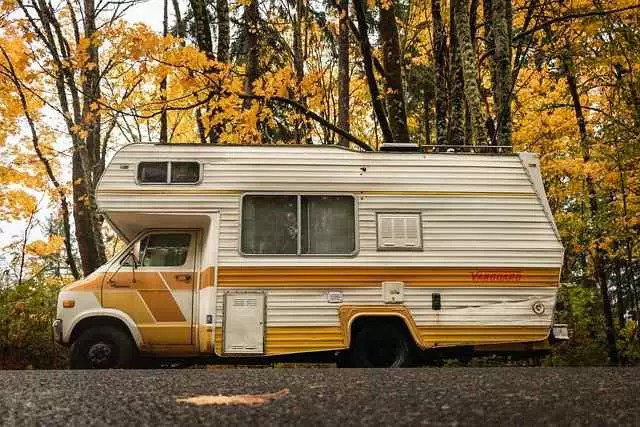
More Tips when Boondocking
Checklist Before Your RV Boondocking Trip
When RV boondocking, simplicity is the key, but there are a few essential items that will make your journey much more pleasant and safe.
Make a checklist with additional batteries, food, and clothing for all types of weather. Check and double-check your list to ensure that you have everything you need.
Later on, we’ll go over the essential must-haves for your RV boondocking journey and for the perfect experience as a boondocker. Here are a few extra things to look through before you go RV boondocking.
Electricity/Solar
We could recharge the Class A batteries on a sunny day without using the generator when we had the 100-watt portable solar panel. We could also charge our gadgets and watch TV, but we had to be careful about how much energy we used.
The camper van’s roof-mounted solar and lithium battery arrangement has revolutionized how we consume power. We haven’t needed to use the under-the-hood generator or plug into shore electricity since we moved in. In one day, we were able to operate the Instant Pot, the air conditioner, and charge all of our gadgets without dipping below the recommended discharge for the batteries. We may now utilize electricity without fear of being harmed.
Water
We rely completely on the freshwater tank when we don’t have access to another water supply, such as a river or stream. If we’re boondocking near a river or stream, we may collect the water and filter it using one of the numerous available filters. Filter away germs and other potentially hazardous compounds, and we’ll have safe drinking water.
Internet
We require internet connectivity because our full-time work is to create material for our website and our YouTube channel. We’ll have to break camp and travel to a location with cellular service if we can’t obtain a phone signal. The weBoost cell signal enhancer is one of our favorite gadgets. We were able to upgrade our Verizon 1x to LTE while boondocking in the Mojave National Preserve without having to leave camp.
Have a Way to Communicate
Always keep a fully charged cell phone on hand, and remain as close to a cell tower as feasible. If you can’t stay inside the cell range, be aware of the location of the nearest landline in case of an emergency.
Pack an Emergency Kit
Prepare a First Aid Kit. An emergency pack is essential for keeping your family safe when boondocking. A first-aid package, a weather radiodifusión, emergency food and water, and a technique to stay warm without power should all be included.
Always Have Extra Fuel
Always keep a reserve of fuel on hand. It’s not enjoyable to be stranded in the middle of nowhere because you run out of petrol. To guarantee that this never occurs to you, keep a tank of gas on hand.
Bring Tools
Bring your own tools. When things go wrong, you sometimes have to fix them yourself. To accomplish this, make sure you have a comprehensive toolset.
Water Jugs – When camping outside of RV parks, water is in scarce supply. While you may survive a few days without showering or washing dishes, having a gallon or two of drinking water on hand is usually a good idea.
12v Fans – You won’t be able to use your RV’s air conditioner without electrical hookups. However, a pair of 12v fans powered by the same batteries as your RV’s lighting system will keep you cool.
Space Heater using Propane – If you believe boondocking is only for the summer, you’re wrong! Boondocking in the cold may be a lot of fun, but utilizing your RV’s heater will quickly deplete your tanks. Using a tiny space heater allows you to keep certain areas warm without wasting a lot of fuel.
Composting Toilets – RV toilets consume a lot of resources. The water tank goes dry after many days of boondocking, while the sewage tank fills up. Your waste will be hygienic and odor-free with a composting toilet.
Kit for First Aid – Boondocking might take your RV rental to a distant location, leaving you without access to medical care. A basic kit including a variety of bandages, sterilizing treatments, and a few instruments such as tweezers and scissors should suffice.
Power Banks – Even if you’re not connected to the internet, you’ll want to use your phone, e-reader, or handheld gaming device. All of your equipment should be kept up and running using a power bank with adequate capacity for numerous charging cycles.
Cell Signal Booster – If you’re camping far from civilization, this is a must-have. Having a few extra bars on hand might save your life in an emergency.
Before you start your road trip, stock up on these goods and make a last walk-through of your RV.
Complete final checks just before loading up the RV and heading off on the open road. Check to see that your tank is full, your batteries are charged, and you have everything you require. The last thing you want to do is set up camp only to find you’ve forgotten something important.
Best Boondocking Travel Trailer or RV?
What is the best travel trailer or RV for boondocking? If you’re looking to rent or buy an RV expressly for boondocking, you might be unsure which one to choose. The fact is that there is no such thing as a “perfect” boondocking RV. Any RV, in fact, can go boondocking. And to the question, our readers have when reading this article about What is a boondocker, you are the boondocker when taking this great opportunity of boondocking and enjoy the experience.
However, certain rigs are better at traveling off-road and handling mountains and woods than others. These rigs, in our opinion, are the greatest boondocking RV possibilities. The following are our top picks for camping travel trailers and RVs, as well as precautions when buying a camping camper.
Best Boondocking Travel Trailer Type
A tiny travel trailer that can be carried by a smaller SUV is the perfect travel trailer for boondocking. As a result, we choose teardrop trailers, pop-ups, and A-frame travel trailers over standard hard-side bumper pull and even bigger fifth wheels.
Best Boondocking Motorhome Type
What is the Best Motorhome for Boondocking? When it comes to RVs, we prefer a class B or campervan since they are more maneuverable. A tiny class C might also be appropriate.
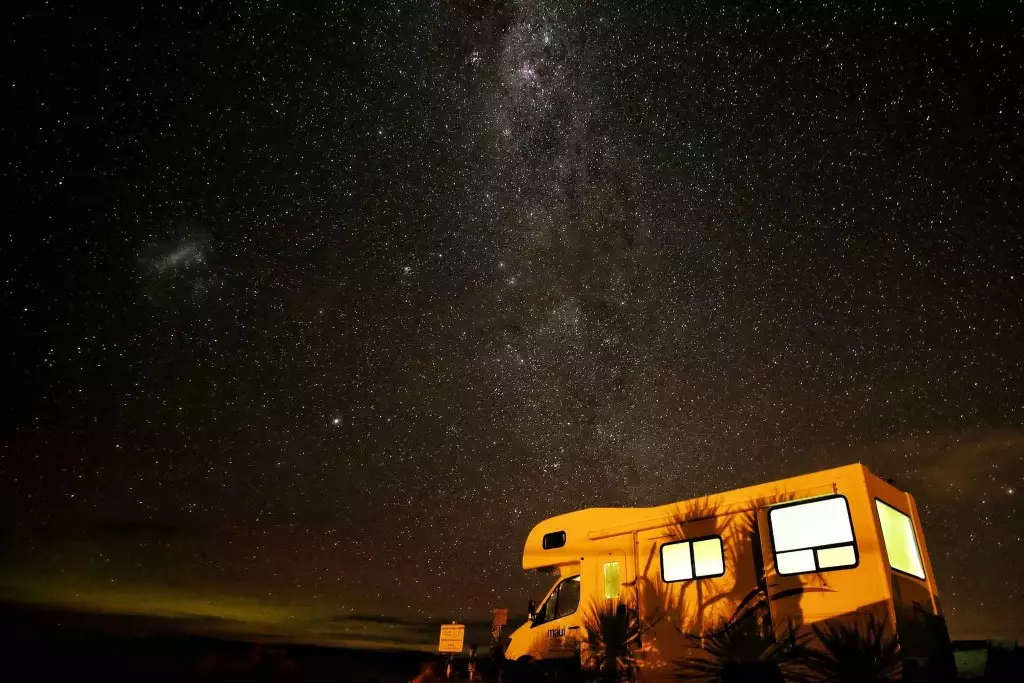
Boondocking Setup
What is a boondocker and How to be a boondocker. The ability to boondock comfortably for long periods of time is one of our primary needs for any RV. The information below pertains to our previous Class A motorhome and current Class B camper van.
Boondocking Setup for a Class A Gas Motorhome (Under 30 Feet) With a Tow Car
75-gallon freshwater tank, 60-gallon gray tank, and 40-gallon black tank capacity We lacked water cans as well as a portable holding tank. Some RVers use them to increase the amount of time they can stay in the same area without breaking camp.
Power: 4,000-watt Onan generator, 220 amp-hour, 6-volt deep-cycle batteries, 100-watt portable solar panel, and 600-watt modified sine inverter
Boondocking experience: we could boondock for 10-12 days without moving if we had a full tank of petrol and freshwater, as well as empty gray and black tanks. We had to pack up and find a dump station because the black tank was usually the first to fill up. We always utilized facilities outside the RV when we could to save black tank space. If the sun was shining brightly, the solar panel could keep the batteries charged if we kept the amount of power we consumed to a minimum. We’d use the generator to charge the batteries and/or operate the A/C and other appliances if we didn’t have the generator.


Boondocking Setup for a Class B Camper Van (Under 21 Feet) Without A Tow Car
Tank capacity: A good combination should be a 4.6-gallon black water tank and a 26-gallon gray tank. Plus, 30-gallon freshwater tank (of course, depends on the length of the stay).
Electricity: 280-amp under-the-hood generator, 400-amp-hour lithium-ion batteries, 320-watt rooftop solar, and 3,000-watt pure sine inverter
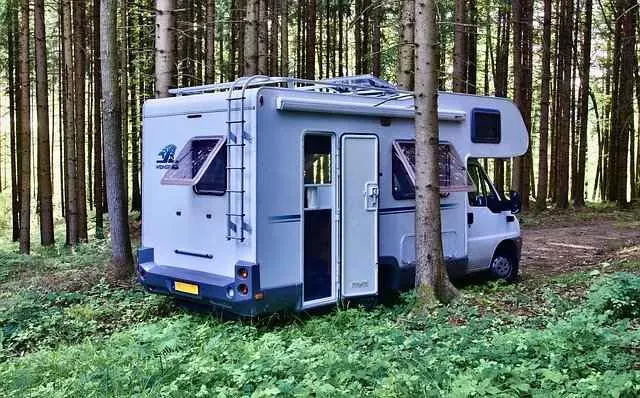
Get out and start Boondocking Today!
What Does Boondocking Mean? If you’re new to RVing, camping, or van life, you’ll almost certainly try boondocking at some time. Perhaps you’ve already done it but didn’t realize that it’s called Boondocking.
It’s time to start organizing your free camping adventure now that you know what boondocking is! and be a great boondocker. This list of the finest locations to camp for free in your RV is a great place to start.
In any case, boondocking comes in a variety of styles, and you may pick one that suits you. It’s a great way to save money while also spending more time camping and doing what you enjoy. So, What is a boondocker? You may be a boondocker. Enjoy this great opportunity.
Looking for RV Boondocking Experiences – Rent an RV in Alaska – Complete Guide to Visit
Learn more about Top 15 Old and New Retro Campers
You may be interested in How to Winterize a Camper to Travel and Live In
